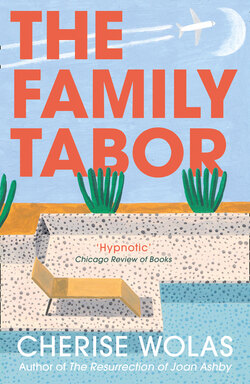Читать книгу The Family Tabor - Cherise Wolas - Страница 9
TWO
ОглавлениеTHE HOURS PASS, AND he sleeps deeply, and then all the blood-soaked history of the Judaic people, and all the history of those to whom he is related, whose lives were cut short or resulted in his existence, and all his beliefs about the past and the future, and about faith and prayer, are fading back into the pleats of Harry Tabor’s sleeping mind. It is dawn and he is waking, opening his shining brown eyes, running a large hand through his thick hair, still boisterously dark, threads of distinguished white only recently emerging, in this his seventieth year.
He is quick out of bed, the travertine marble cool under his feet, and in the bathroom, he gives his solid teeth a thorough cleaning, grinning at himself when he finishes rinsing. He picks up the razor, runs a hand over his cheeks, thinking happily of this afternoon, when his children and grandchildren will descend upon the family’s substantial and striking mid-century modernist homestead, with its five bedrooms and endless other rooms, all open to the expanse of sky and desert and weather and one or the other of their two pools. He and Roma and their progeny all gathered together for this weekend of Man of the Decade pomp and circumstance.
Maybe there will be time for a hike with his son. Wouldn’t Simon be surprised if he said, “I’m finally ready to do Cactus to Clouds”? Really, this would be the perfect weekend to hike that tough trail he has always avoided.
He sets down the razor. He’ll take the single-edge blade to his face tonight, be glisteningly smooth for the gala event celebrating him.
In his large closet, he dresses in his tennis whites, then tiptoes, socks and Tretorns in hand, out of the master bedroom with its view, when the drapes are pulled back, of the meditation pool, leaving Roma asleep, her face aglow in a shard of sunlight, dreaming, he hopes, about something pleasurable, not about Tatiana and Inessa, or the youngster she has begun treating who has ceased eating entirely.
In the sunny kitchen, the waft of espresso makes him smile again, that timer on the machine such a modern wonder. He throws back a first cup, rich and unadulterated, looking out over the large aquamarine rectangle in the main courtyard where Roma swims her daily laps before healing the children of the Coachella Valley.
Socks on, laces tied, he gulps down two more espressos, leaves the thimble-sized cup in the sink, and pulls from the freezer three bottles of water, slick as stalactites.
Out into the open-air carport, into his old convertible Mercedes coupe painted in a patina of gold, he revs the engine just a little, to feel the vroom in his being, and leaves his majestic home, which sits on a solid acre, driving past the flowering cacti and soaring palms, and the beds of mimosas, ocotillos, acacias, lemongrass, and the lilies of the Nile, after which the Tabors’ street is named, turning left onto his street, onto Agapanthus Lane. He presses the gas, feels the stalwart car gather its power, gliding so easily over the smooth macadam, a hop and a skip to the courts.
He could belong to any of the private tennis clubs in the area, and his tennis pal, Levitt, would prefer playing at his own, but Harry is a man of the people, and he prefers the public courts. After all, he comes from solid stock that knew how to make do with what they had, which was nothing. And he knows how to make do, too, only he has so much more than any impoverished Tabornikov could have imagined possessing back in the Pale of Settlement, when the world was so very, very, very old. Harry Tabor may no longer be chronologically young, but he feels as if he is, lives as if he is, as if this world is a great and wonderful place, and he himself is adding to that wondrousness, waking up every day strong as a bull, his thoughts sharp and important, his very being brand-new. A man self-made, through and through. That’s how he remembers his own life, up to this point.
And there is Levitt’s showy Maserati cooling down when Harry pulls into his regular spot at Ruth Hardy Park. Younger than Harry by a baker’s dozen, but not quite as agile a player, Levitt is a friend Harry considers “newish” since they met only a decade ago. In the desert, ten years is nothing against the antediluvian nature of the topography.
Creaky parking brake engaged, Henry swings himself easily through the car’s open door, is up on his feet, retrieving his tennis bag from the backseat.
“You ready to lose again, Levitt? I’m telling you, you’d better be tough, give me your prime-A game, because today is my lucky day.”
